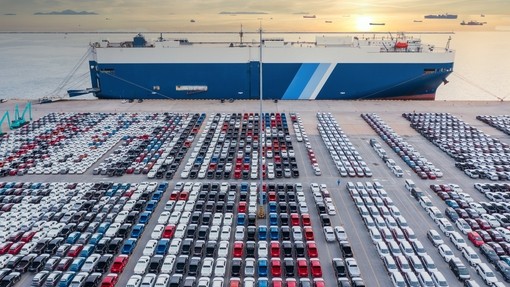Negative and zero commodity prices - legal issues for traders

Details
On 20 April 2020, the benchmark oil price in the United States plummeted below zero for the first time and the Brent price also fell sharply. This article looks at some of the legal questions that may be relevant to traders when commodity prices fall to zero or into negative values.
In a very low-price environment, the performance of some deals will be against the commercial interests of both seller and buyer. This is not uncommon in the aftermath of a price shock as the lack of liquidity affects entire supply chains and any available storage space gets bought up quickly. As a result, some buyers will not want, or be able, to accept goods that they agreed to purchase, meanwhile some sellers will not want to sell at a negative or zero price. In these situations, parties can work together to achieve a negotiated outcome. This may involve suspending performance and/or rescheduling deliveries, or terminating the contract by agreement.
However, some buyers will want their sellers to honour deals notwithstanding the price crash. Some sellers may not want to perform in the circumstances. Below are some of the questions arising in these situations.
Must a seller perform if the price has dropped to zero or a negative value?
Does the contract address zero or negative prices?
Clauses explicitly dealing with what will happen if prices drop to zero or into negative values were not generally used in trading contracts prior to Q2/2020 but have begun to appear since then.
Such clauses take one of two potential approaches, each providing for the continued performance of the contract.
The first, and more common, type of clause imposes a price floor of zero stating that there will not be any obligation to pay the absolute value of a negative floating price. In other words, the seller will not be required to pay the buyer for the goods. A variation of this clause is to provide for a price floor of say US$1.00 lump sum, thus providing nominal consideration to the seller.
The second type of clause will say that the seller shall be required to pay the absolute value of a negative floating price. In other words, the seller will have to pay the buyer to take the goods.
Both such clauses may also state that the buyer remains obligated to accept delivery of the full contracted volume of goods but shall not be required to pay anything. Language acknowledging that the contract shall remain valid in spite of any negative pricing may also be included for avoidance of doubt. It may also be useful to acknowledge that the parties’ liabilities to pay demurrage and other ancillary costs remain unaffected.
The International Swaps and Derivatives Association (ISDA) published model clauses along the above lines in October 2020 for use, on an optional basis, in ISDA trading documentation.
Is there a price review or renegotiation clause?
In oil, at least a few trading parties have started including clauses requiring the parties to discuss reasonably – or sometimes ‘in good faith’ - with a view to negotiating modifications to the terms of the contract as necessary to restore the intended economic equilibrium in the event of a price crash or other extraordinary market events, such as a regulatory change. This approach is somewhat contrary to the English law principle of certainty of contract and is not one that the author would generally recommend. From a contract operating and dispute avoidance perspective, a more structured and prescriptive mechanism for dealing with exceptional events is preferred.
In gas trading, the above mentioned general approach is relatively well-established in the form of price review mechanisms in long-term agreements. Many such agreements have terms of 15 years or longer. A party can be exposed to catastrophic levels of financial risk if economic circumstances change to their detriment in the middle of the term. However price review clauses are generally only useful when a party wishes to make long-term changes, as they can normally be invoked once every few years, and involve referring the issue to an arbitrator or independent expert. They do not provide quick, one-off relief in response to a price crash. However, as oil markets become more volatile and gas trading activity grows, gas traders may consider invoking price review mechanisms to shift oil-indexed price formulae towards gas-hub-indexation if they believe this will reflect more accurately the market value of the gas traded under their agreement.
Force majeure clauses - or tailored ‘price collapse’ clauses
As explained in the March 2020 edition of Trade Advantage, English law does not recognise force majeure (FM) as a standalone concept. FM relief will only be available where a contract contains an FM clause. The meaning and effect of FM will depend on the wording of the clause each time. Typically, FM clauses list a set of trigger events and limit the right to invoke the clause to situations where the trigger event was unforeseeable and prevents or hinders performance.
Therefore, a party seeking to invoke FM on the grounds of a price collapse should first check whether the contract contains an FM clause and, if so, whether the clause specifically enumerates price collapse as a trigger event. If it does not, it may be possible to argue that price collapse is encompassed by one of the trigger events that do appear in the clause. This will be a matter of contractual construction each time and is likely to be contentious. Some will take the view that the risk of price collapse is an inherent part of commodity trading, especially where parties choose to use a floating price instead of a fixed one, and not something that should excuse a party from performing when things do not go their way commercially. After all, traders are expected to accept the risk and reward associated with market movements. However the arguments available to a party seeking to invoke an FM clause will depend on its wording. In order to avoid such disputes, FM clauses should be drafted as comprehensively as possible, specifically enumerating all of the desired trigger events.
In the past it has not been common practice to include price collapse as a trigger event in FM clauses in trading contracts. Looking forwards, in the post-2020 world counterparties may or may not want to do so. On the one hand, they may view this as contrary to the spirit of commodity trading. Other traders, however, may view negative or zero prices as an extraordinary event that should discharge them from having to perform under contracts. Where parties wish to take this approach, they should ensure that their contracts clearly provide for this. While this can, in theory, be done by way of an FM clause, this may not be the best way as some of the typical features of FM clauses do not fit well with price collapse. For example, typical FM language referring to unforeseeability and prevention of performance is not suitable in this context. A separate tailored clause designed specifically to address price collapse is likely to be a better approach. Such clause might follow a similar structure as an FM clause, providing a mechanism to relieve one or both parties of their performance obligations without liability.
Whichever type of clause is used, in order for it to provide a seller with relief, it would need to be drafted in such a way that permanently discharges the obligation to deliver the affected goods at the negative/zero price. Depending on the terms of the clause and the pricing formula, suspensory relief without the express right to cancel cargoes or terminate the contract may not release the seller from eventually having to deliver the affected cargo priced as per the original pricing period.
Frustration
If none of the above clauses are contained in the contract, sellers may try to rely on the doctrine of frustration to argue that the contract has been discharged automatically. The doctrine of frustration involves a strict legal threshold and arguing that a price crash constitutes a frustrating event will not be straightforward.
Among other criteria, there has to be unexpected supervening circumstances making performance a radically different thing from what the parties had bargained for at the outset. The courts have ruled that changes in economic circumstances or increased expense will not frustrate a contract. However, there does not appear to be binding authority dealing with a contract that has become completely unprofitable for one of the parties, such that, arguably, it is radically different from what was contemplated at the outset. Some may not consider that a seller would ever contemplate receiving nil payment or, even worse, paying its buyer to take goods.
Pending the emergence of binding authority on this point, the issue of whether a zero or negative price crash is a frustrating event remains hard to call.
What about consideration?
Lawyers have debated whether a contract shall become invalid if the floating price falls to zero or a negative value on the basis that the seller will not receive any benefit. It will be interesting to see whether the principles of consideration will be developed by the courts in cases in the context of price volatility.
Would a seller have to pay its buyer to take goods?
Where parties are to proceed with sale transactions when prices are negative, this could see sellers paying buyers to take the goods. This may be a seller’s best option commercially at the time. However what is the legal position on accounting for negative prices in trading contracts? Is a seller legally obligated to pay its buyer to take the goods?
This is another novel question that has not been addressed by the courts in the commodity trading context. There is recent Court of Appeal authority on negative rates in the context of interest on collateral in ISDA derivatives transactions, although its application may be somewhat limited outside of the ISDA context.
In The State of the Netherlands -v- Deutsche Bank AG2 the Court of Appeal ruled, in favour of Deutsche Bank, that the standard form Credit Support Annex (CSA) to the ISDA Master Agreement did not provide for the payment of negative interest. The terms of the CSA in this case had been amended to require Deutsche Bank only, and not Netherlands, to post collateral. Netherlands was to pay interest on this collateral at the rate of EONIA, a European index average, with a fixed discount. The interest rate under the CSA was negative from 2014 onwards. Netherlands argued that interest accruing on collateral posted by it should be in negative figures and payable by Deutsche Bank.
The Court considered it significant that neither the CSA nor ISDA’s User Guide contained language indicating that payment of a negative interest had been contemplated. This reasoning drew on the particular factual matrix in the case including the specific wording of the ISDA documentation. Any transactions involving negative commodity prices would have to be analysed on their own facts.
Of more general application, however, the Court took guidance from legal authorities which said that rival interpretations of contractual terms should be given weight according to business common sense3. This general approach would be likely to apply to disputes concerning commodity prices.
Conclusion
As will be clear from this article, the legal issues at play in a negative or zero-price environment will require intensive factual inquiry and legal analysis on a case-by-case basis.
Where trading counterparties are unable to agree on a negotiated way forward, they should proceed cautiously before making any decision not to perform contractual obligations – including any possible obligation to pay a buyer to take goods.
To avoid disputes in the future, parties should consider including language explicitly dealing with negative and zero prices, or market volatility generally in contracts.






